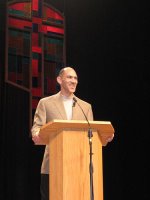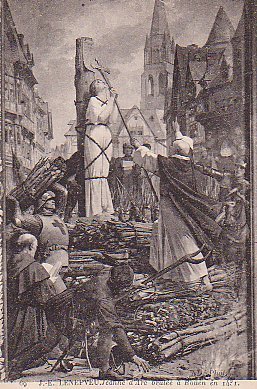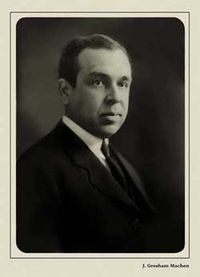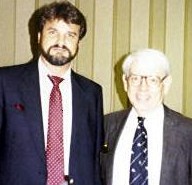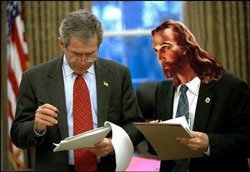The Witherspoon Institute has published online the document, Marriage and the Public Good: Ten Principles. Here's what The Princeton Principles website says about the document:
The "Ten Principles on Marriage and the Public Good" are the result of scholarly discussions that began in December, 2004 at a meeting in Princeton, New Jersey, sponsored by the Witherspoon Institute. This conference brought together scholars from History, Economics, Psychiatry, Law, Sociology and Philosophy to share with each other the findings of their research on why marriage is in the public interest. A consensus developed for sharing the fruit of their collaboration more widely.
The Witherspoon Institute is an independent research center located in Princeton, New Jersey. It is not connected to Princeton University, Princeton Theological Seminary, The Center for Theological Inquiry, or the Institute for Advanced Study.
You can read the document in its entirety
here. The document's signatories may be found
here. The document's
executive summary follows.
In recent years, marriage has weakened, with serious negative consequences for society as a whole. Four developments are especially troubling: divorce, illegitimacy, cohabitation, and same-sex marriage.
The purpose of this document is to make a substantial new contribution to the public debate over marriage. Too often, the rational case for marriage is not made at all or not made very well. As scholars, we are persuaded that the case for marriage can be made and won at the level of reason. Marriage protects children, men and women, and the common good. The health of marriage is particularly important in a free society, which depends upon citizens to govern their private lives and rear their children responsibly, so as to limit the scope, size, and power of the state. The nation's retreat from marriage has been particularly consequential for our society's most vulnerable communities: minorities and the poor pay a disproportionately heavy price when marriage declines in their communities. Marriage also offers men and women as spouses a good they can have in no other way: a mutual and complete giving of the self. Thus, marriage understood as the enduring union of husband and wife is both a good in itself and also advances the public interest.
We affirm the following ten principles that summarize the value of marriage- a choice that most people want to make, and that society should endorse and support.
Ten Principles on Marriage and the Public Good:
1. Marriage is a personal union, intended for the whole of life, of husband and wife.
2. Marriage is a profound human good, elevating and perfecting our social and sexual nature.
3. Ordinarily, both men and women who marry are better off as a result.
4. Marriage protects and promotes the wellbeing of children.
5. Marriage sustains civil society and promotes the common good.
6. Marriage is a wealth-creating institution, increasing human and social capital.
7. When marriage weakens, the equality gap widens, as children suffer from the disadvantages of growing up in homes without committed mothers and fathers.
8. A functioning marriage culture serves to protect political liberty and foster limited government.
9. The laws that govern marriage matter significantly.
10. "Civil marriage" and "religious marriage" cannot be rigidly or completely divorced from one another.
This understanding of marriage is not narrowly religious, but the cross-cultural fruit of broad human experience and reflection, and supported by considerable social science evidence. But a marriage culture cannot flourish in a society whose primary institutions-universities, courts, legislatures, religions-not only fail to defend marriage but actually undermine it both conceptually and in practice.
Creating a marriage culture is not the job for government. Families, religious communities, and civic institutions-along with intellectual, moral, religious, and artistic leaders-point the way. But law and public policy will either reinforce and support these goals or undermine them. We call upon our nation's leaders, and our fellow citizens, to support public policies that strengthen marriage as a social institution including:
1. Protect the public understanding of marriage as the union of one man with one woman as husband and wife.
2. Investigate divorce law reforms.
3. End marriage penalties for low-income Americans.
4. Protect and expand pro-child and pro-family provisions in our tax code.
5. Protect the interests of children from the fertility industry.
Families, religious communities, community organizations, and public policymakers must work together towards a great goal: strengthening marriage so that each year more children are raised by their own mother and father in loving, lasting marital unions. The future of the American experiment depends on it. And our children deserve nothing less.
enjoy, ron















